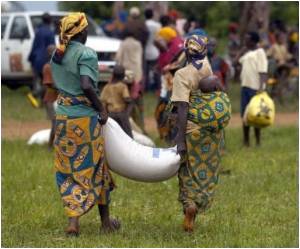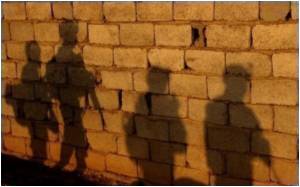Brief therapy to help Ugandan former child soldiers talk about their experiences showed the best results in getting rid of post-traumatic stress disorder, said a study published in the US on Tuesday.

The practice could offer an inexpensive way to ease the transition back to regular life for the 250,000 young people estimated to be actively involved in fighting conflicts in 14 countries around the world, according to UN figures.
A total of 85 former child soldiers aged 12-25 who were clinically diagnosed with PTSD took part in what researchers at Germany's Bielefeld University described as the first-ever randomized controlled study of mental health interventions.
One-third were treated with narrative exposure therapy, in which "the participant constructs a detailed chronological account of his or her own biography in cooperation with the therapist to reconstruct fragmented memories of traumatic events and to achieve habituation," the study said.
Eighty percent of those subjects (20 of 25 participants) "were found to have improved with regard to PTSD severity" after eight sessions of 90-120 minutes each.
In contrast, only 48 percent of the academic catch-up group and 50 percent in the waiting list group "showed clinically relevant improvement," it said.
Advertisement
Many children in Uganda were recruited to fight in the Lord's Resistance Army as part of a 20-year civil conflict between rebels and Ugandan forces that claimed the lives of tens of thousands of people and saw nearly two million displaced.
Advertisement












